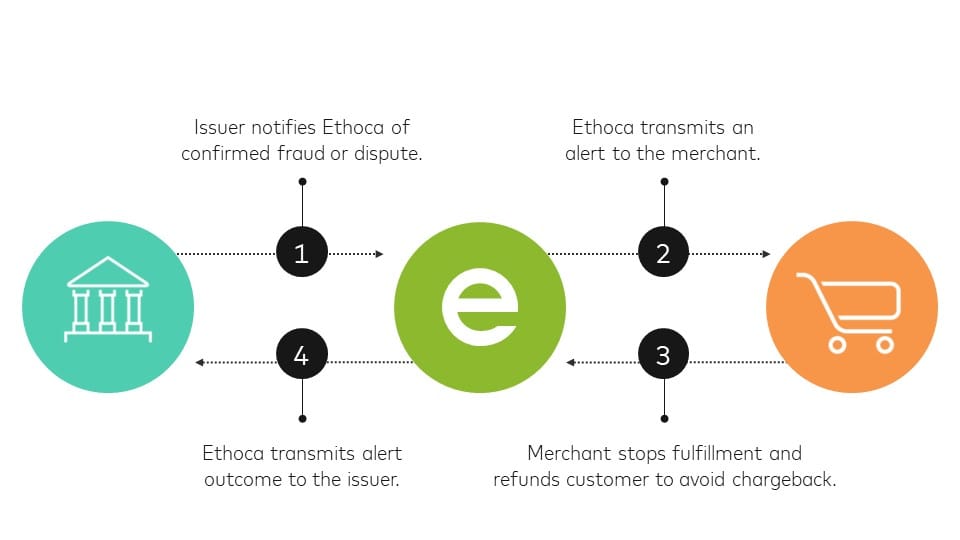
SuperPay helps accountants like yourself get paid as quickly as possible. Choose our platform to power your one-off and recurring billing.
In today's highly competitive business landscape, networking has become an essential skill for professionals in various fields. Accounting professionals, in particular, can greatly benefit from building and nurturing a strong network of contacts. Networking not only opens doors to new opportunities but also plays a crucial role in enhancing knowledge, advancing careers, and building a supportive community within the accounting profession.
Understanding the Importance of Networking in the Accounting Profession
Accounting is a dynamic field that constantly evolves in response to changes in regulations, technology, and business practices. By actively participating in networking activities, accounting professionals can stay updated with the latest trends and developments in their industry. This exposure to new ideas and perspectives helps them enhance their knowledge and skills, making them more valuable assets to their organizations.
Networking also provides accounting professionals with opportunities for career advancement. Through connections made at industry events, conferences, and association meetings, professionals can gain access to job openings, mentorship opportunities, and valuable advice from seasoned experts. Building relationships with influential individuals in the accounting field can significantly accelerate career growth and open doors to leadership roles and high-profile projects.
Building a Supportive Professional Community
Accounting can sometimes be a solitary profession, with professionals spending long hours crunching numbers and analyzing financial data. However, networking allows accountants to connect with like-minded professionals who understand the challenges and intricacies of their work. By building a supportive professional community, accounting professionals can share insights, seek advice, and find a sense of camaraderie that can help them navigate their careers more effectively.
Effective Networking Strategies for Accounting Professionals
To maximize the benefits of networking, accounting professionals can employ various strategies. Joining professional accounting associations provides access to a vast network of industry experts, allowing professionals to stay informed about industry updates, attend training sessions, and participate in networking events. Attending industry conferences and events also creates opportunities to meet potential clients, employers, and collaborators.
Leveraging social media and online platforms is another effective networking strategy for accounting professionals. Platforms like LinkedIn provide a virtual space to connect with industry peers, share knowledge, and showcase professional achievements. Engaging in online forums and discussion groups can foster valuable connections and open doors to new opportunities.
Establishing and maintaining professional relationships is at the core of successful networking. Regularly attending networking events, following up with contacts, and offering support and assistance to others in the industry can help build strong and lasting relationships.
Overcoming Challenges in Networking for Accounting Professionals
While networking can bring numerous benefits, it can also present challenges for accounting professionals. Introversion and shyness may hinder some individuals from initiating conversations and building connections. However, with practice and stepping out of their comfort zones, accountants can develop effective networking skills and overcome these challenges.
Finding time for networking activities can also be a struggle for busy accounting professionals. Balancing client work, deadlines, and personal commitments may leave little time for networking. However, by prioritizing networking and integrating it into their schedules, professionals can ensure they are dedicating time to building their network.
Maintaining authenticity in professional relationships is vital for successful networking. While it is essential to present oneself professionally, it is equally important to be genuine and build relationships based on trust and mutual respect.
Case Studies: Successful Networking in the Accounting Field
To provide real-world examples of the power of networking in the accounting profession, this blog post will include case studies highlighting how networking has elevated the careers of successful accountants. These case studies will also showcase inspiring stories of networking leading to innovative accounting solutions, demonstrating the tangible benefits that networking can bring to accounting professionals.
In conclusion, networking is an essential aspect of a successful accounting career. By actively engaging in networking activities, accounting professionals can enhance their knowledge, open doors to new opportunities, and build a supportive community. This blog post will delve deeper into the various benefits of networking for accounting professionals and provide practical strategies to overcome challenges and maximize the potential of networking in the accounting field.
Understanding the Importance of Networking in the Accounting Profession
Networking holds immense importance in the accounting profession. To truly grasp its significance, it is essential to explore the various reasons why networking is crucial for accounting professionals. Understanding these reasons will shed light on how networking can contribute to professional growth, knowledge enhancement, and career advancement within the accounting field.
Expanding Knowledge and Insights: Networking provides accounting professionals with access to a wealth of knowledge and insights. Engaging with peers, industry experts, and thought leaders allows professionals to stay updated with the latest trends, best practices, and regulatory changes in the accounting industry. By actively participating in networking events, joining professional associations, and connecting with fellow accountants, professionals can gain valuable insights and broaden their understanding of the field.
Building a Strong Professional Reputation: Networking enables accounting professionals to establish and enhance their professional reputation. By attending conferences, seminars, and industry events, professionals can showcase their expertise, share their experiences, and contribute to discussions. This visibility within the professional community helps build credibility and establishes a positive reputation, which can lead to increased opportunities for career growth and advancement.
Creating Collaborative Opportunities: Networking fosters collaborative opportunities among accounting professionals. By connecting with individuals from different sectors of the accounting industry such as auditors, tax experts, financial analysts, and consultants, professionals can tap into a diverse pool of expertise. Collaboration can lead to innovative solutions, strategic partnerships, and the ability to tackle complex accounting challenges more effectively.
Access to Job Opportunities: Networking plays a significant role in connecting accounting professionals to potential job opportunities. Building relationships with recruiters, industry influencers, and fellow professionals can increase visibility and lead to referrals for job openings. Through networking, professionals can gain insights into unadvertised positions, enhance their chances of being recommended for roles, and access a hidden job market that may not be accessible through traditional job search methods.
Mentorship and Guidance: Networking provides accounting professionals with the opportunity to find mentors who can offer valuable guidance and support. Seasoned professionals who have navigated the challenges of the accounting profession can provide insights, share experiences, and offer advice on career development. By seeking out mentorship through networking, professionals can accelerate their growth, learn from others' experiences, and gain valuable perspectives on their career trajectory.
Business Development and Client Acquisition: Networking can also serve as a platform for accounting professionals to acquire new clients and expand their business opportunities. By attending networking events and building relationships with potential clients, professionals can showcase their expertise, establish trust, and create opportunities for new business collaborations. Networking can also lead to referrals from other professionals, creating a network of trusted partners who can refer clients and contribute to the growth of the accounting practice.
In summary, understanding the importance of networking in the accounting profession reveals its potential to enhance knowledge, build a strong reputation, foster collaboration, provide access to job opportunities, offer mentorship, and contribute to business development. Accounting professionals who recognize and actively engage in networking activities can position themselves for success, growth, and advancement in their careers.

How Networking Benefits Accounting Professionals
Networking offers a wide range of benefits for accounting professionals, contributing to their personal and professional growth. This section will explore the specific advantages that networking provides to accounting professionals, highlighting how it can enhance their knowledge and skills, create opportunities for career advancement, and build a supportive professional community.
Enhancing Knowledge and Skills: Networking exposes accounting professionals to a diverse range of perspectives, insights, and experiences. By engaging with fellow professionals, attending industry events, and participating in discussions, professionals can gain valuable knowledge about industry trends, emerging technologies, and evolving regulations. This exposure broadens their understanding of the accounting field, deepens their expertise, and enables them to stay ahead of industry developments.
Opportunities for Career Advancement: Networking plays a crucial role in creating opportunities for career advancement in the accounting profession. By expanding their professional network, accounting professionals increase their visibility and exposure to potential employers, mentors, and industry leaders. Networking events, conferences, and association meetings provide platforms for professionals to showcase their skills, exchange ideas, and explore new career prospects. Through networking, professionals can learn about job openings, secure referrals, and access exclusive career advancement opportunities that may not be advertised publicly.
Building a Supportive Professional Community: Networking allows accounting professionals to build a supportive community of peers who understand the challenges and intricacies of their profession. By connecting with like-minded professionals, individuals can form supportive relationships, share experiences, and seek advice from those who have faced similar situations. This professional support system can provide a sense of camaraderie, encouragement, and motivation, ultimately boosting job satisfaction and overall well-being.
Access to Mentors and Role Models: Networking opens doors to finding mentors and role models within the accounting field. By cultivating relationships with experienced professionals, individuals can gain insights, guidance, and support from those who have excelled in their careers. Mentors can provide valuable advice, share lessons learned, and help professionals navigate the complexities of the profession. Networking facilitates the identification and connection with mentors who can inspire, challenge, and guide accounting professionals toward achieving their goals.
Expanding Professional Opportunities: Networking expands the range of professional opportunities available to accounting professionals. Through connections made at networking events, professionals can discover potential partnerships, collaborations, and business development prospects. Networking provides exposure to a broader client base, allowing professionals to establish relationships with potential clients, generate referrals, and expand their professional reach. This increased exposure to diverse opportunities can lead to professional growth, increased revenue, and a more fulfilling career.
In summary, networking benefits accounting professionals by enhancing their knowledge and skills, creating opportunities for career advancement, building a supportive professional community, providing access to mentors and role models, and expanding professional opportunities. By actively engaging in networking activities, accounting professionals can leverage these benefits to excel in their careers and thrive in the dynamic field of accounting.
Effective Networking Strategies for Accounting Professionals
To make the most of networking opportunities, accounting professionals can employ effective strategies that maximize their chances of building meaningful connections and reaping the benefits of networking. This section will delve into various strategies that accounting professionals can utilize to enhance their networking efforts and establish valuable professional relationships.
Joining Professional Accounting Associations: Joining professional accounting associations provides accounting professionals with access to a vast network of industry experts, peers, and potential clients. These associations often organize networking events, seminars, and conferences specifically tailored to the accounting profession. By becoming a member of reputable accounting associations such as the American Institute of Certified Public Accountants (AICPA) or the Association of Chartered Certified Accountants (ACCA), professionals can tap into a wide range of networking opportunities and gain exposure to the latest industry trends.
Attending Industry Conferences and Events: Industry conferences and events offer accounting professionals a platform to connect with like-minded individuals, industry leaders, and potential employers or clients. Attending these events allows professionals to stay updated on the latest developments, participate in thought-provoking discussions, and engage in networking sessions. By actively participating in conferences such as the Financial Accounting and Reporting Conference or the International Tax Conference, accounting professionals can expand their professional network and gain valuable insights into industry best practices.
Leveraging Social Media and Online Platforms: In today's digital age, social media and online platforms have become powerful tools for networking. Accounting professionals can leverage platforms like LinkedIn, Twitter, and accounting-specific forums to connect with industry peers, share knowledge, and build their professional brand. By actively engaging in conversations, joining relevant groups, and sharing valuable content, professionals can expand their online network and establish themselves as thought leaders in the accounting community.
Establishing and Maintaining Professional Relationships: Building meaningful relationships is at the core of effective networking. Accounting professionals can establish connections by attending networking events, initiating conversations, and demonstrating genuine interest in others' work. Following up with contacts after networking events, scheduling coffee meetings, or sending personalized emails can help nurture and maintain these relationships over time. By offering support, sharing resources, and staying connected, accounting professionals can build strong and mutually beneficial professional relationships.
Volunteering and Getting Involved: Volunteering within accounting associations, community organizations, or professional groups can provide valuable networking opportunities. By actively participating in committees, organizing events, or offering expertise, professionals can interact with fellow volunteers, industry leaders, and potential clients. Volunteering not only showcases dedication and commitment but also offers a chance to collaborate with individuals who share similar interests and values.
Utilizing Alumni Networks: Leveraging alumni networks from educational institutions or previous workplaces can be an effective way to expand one's professional network. Accounting professionals can connect with alumni through alumni events, online platforms, or professional associations affiliated with their alma mater. By reaching out to fellow alumni, professionals can tap into a network of individuals who have gone through similar educational or career paths and may offer valuable insights, mentorship, or potential business opportunities.
By implementing these effective networking strategies, accounting professionals can expand their professional network, strengthen relationships, and unlock opportunities for career growth and success in the accounting field.
Overcoming Challenges in Networking for Accounting Professionals
While networking offers numerous benefits, accounting professionals may encounter certain challenges that can hinder their networking efforts. It is important to address and overcome these challenges to fully leverage the advantages of networking. This section will explore common challenges faced by accounting professionals in networking and provide strategies to overcome them.
Dealing with Introversion and Shyness: Introversion and shyness can present challenges when it comes to initiating conversations and building connections. However, accounting professionals can overcome these challenges by stepping out of their comfort zones and gradually exposing themselves to networking situations. It can be helpful to set small, achievable goals, practice active listening, and prepare conversation starters or questions in advance. Additionally, attending smaller networking events or finding a networking buddy can provide a sense of support and make networking less intimidating.
Finding Time for Networking Activities: Busy schedules and heavy workloads can make it challenging for accounting professionals to dedicate time to networking activities. To overcome this challenge, professionals can prioritize networking as an essential part of their career development. They can schedule networking events, conferences, or meetings in advance and block out time on their calendars. It may also be beneficial to allocate specific time slots each week for networking activities, such as reaching out to contacts, attending virtual networking events, or engaging on social media platforms.
Maintaining Authenticity in Professional Relationships: Building genuine relationships is crucial in networking, and accounting professionals may struggle with maintaining authenticity while networking. It is important to be true to oneself and not try to portray an image that is not genuine. Professionals should focus on building connections based on shared interests, common goals, and mutual respect. Being transparent, honest, and approachable in networking interactions helps establish trust and fosters long-lasting professional relationships.
Navigating Networking Events Effectively: Networking events can sometimes be overwhelming, particularly for accounting professionals who are not natural networkers. To navigate these events effectively, professionals can set specific goals, such as connecting with a certain number of individuals or engaging in meaningful conversations. It can be helpful to research the attendees in advance and identify individuals or groups of interest. Arriving early at events can also provide an opportunity to initiate conversations in a less crowded setting. Additionally, following up with contacts after the event is crucial to maintaining the connections made and furthering the networking process.
Expanding Beyond the Comfort Zone: Networking within familiar circles can limit the growth and potential opportunities that accounting professionals can gain. To overcome this challenge, professionals should actively seek out diverse networking opportunities that expose them to individuals from different industries, backgrounds, or areas of expertise. Attending industry-specific events, joining interdisciplinary networking groups, or engaging in cross-industry collaborations can broaden professional networks and lead to new perspectives, innovative ideas, and unexpected career opportunities.
By recognizing and addressing these challenges, accounting professionals can develop effective strategies to overcome them and maximize the potential of networking. Over time, with practice and perseverance, networking can become a more natural and rewarding experience, leading to valuable connections, career growth, and enhanced professional success.
Case Studies: Successful Networking in the Accounting Field
To provide real-world examples of the power of networking in the accounting profession, this section will present case studies highlighting how networking has elevated the careers of successful accountants. These case studies will showcase inspiring stories of networking leading to innovative accounting solutions and career advancements. By examining these examples, accounting professionals can gain insights into the tangible benefits that networking can bring to their own careers.
Case Study: Networking's Role in Career Advancement This case study will focus on an accounting professional named Sarah. Sarah actively engaged in networking activities by attending industry conferences, joining professional associations, and participating in online accounting communities. Through networking, Sarah developed relationships with influential leaders in her field, leading to a mentorship opportunity and access to exclusive job openings. Sarah's network connections provided invaluable guidance, advice, and recommendations, which ultimately propelled her career to new heights.
Case Study: Networking Driving Innovation This case study will highlight the story of a group of accountants who leveraged their network connections to drive innovation in the accounting industry. By attending networking events and building relationships with professionals from different sectors, they were exposed to new technologies and emerging trends. Through collaborative efforts and knowledge-sharing, this group developed new accounting software that streamlined processes and improved efficiency for their clients. Networking played a pivotal role in connecting these individuals and fostering an environment of innovation and collaboration.
Case Study: Networking's Impact on Business Development In this case study, we will explore the story of an accounting firm that experienced significant business growth through networking efforts. The firm's partners actively participated in networking events, built strong relationships with professionals from complementary industries, and engaged in strategic partnerships. These networking connections resulted in an increase in client referrals, collaborative projects, and expansion into new markets. The firm's commitment to networking not only enhanced their reputation but also contributed to their sustained success.
By examining these case studies, accounting professionals can gain a deeper understanding of how networking can impact their careers, drive innovation, and foster business development. These real-life examples serve as inspiration and demonstrate the potential networking holds for professionals in the accounting field.
Final Assessment
Networking is undeniably a vital component of success for accounting professionals. Building connections, fostering relationships, and staying updated on industry trends through networking can open doors to opportunities, enhance knowledge, and contribute significantly to a prosperous accounting career.


